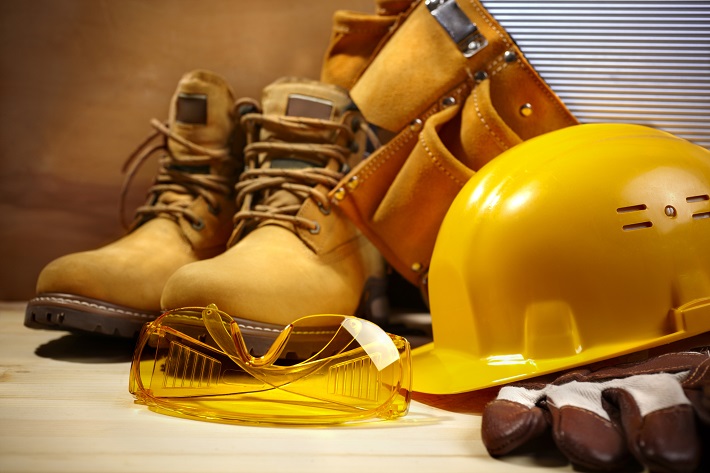So many industries today need to provide safety supplies and safety clothes for their employees and themselves. It is such an integral part of the everyday work experience and it’s no wonder why safety clothes have probably saved countless lives.
Workplace health and safety is of utmost importance when it comes to your workplace so you should know what kind of safety clothes and gear are available to you either at a local safety store or a safety shop online. Knowing what kind of safety gear is available and what different uses they all have will give you the knowledge to know what safety equipment and clothing you should incorporate into your everyday working lifestyle.

Face Shields/Goggles/Glasses
Protecting the face and eye area is important to prevent any short-term or permanent damage that can be caused by sharp objects or chemicals that might be found in your workplace. The most common type of protection includes face shields, goggles and glasses. There are a few things you should consider when deciding whether shields, glasses or goggles will be necessary for your workplace. If you have any risks in your workplace that could contain chemical splashes, irritating vapours, heat, welder’s flash, dust, flying objects, mowing or protection from UV rays, then you may need protective gear for your eyes and face.
You should also consider the work conditions, personal preferences as to which gear would suit employees the best, and what materials you need protective gear to be made of. Goggles will give you a reliable seal around the eye area which is most useful for chemicals, dust and irritating vapors; face shields protect the whole face including the eyes,and are most useful for someone who is welding. To maintain and upkeep your gear, you should always store it correctly, regularly clean it and keep records of the date of issue and maintenance checks.
Protective Gloves
The next part of the body you should consider is the hands and whether hand protection may be needed. You should consider using protective gloves if you have a risk or exposure to heat, chemical burns, cuts, scratches, sharp objects, or any blood or bodily fluids. You may also want to take into consideration if gloves will not be suitable for all aspects of the job or if they offer enough protection for your industry.
You will need to use disposable gloves if you have contact with blood and bodily fluids and you should check what materials are suitable for contact with different chemicals. Gloves like any other safety gear should be checked and maintained on a regular basis, something you should look for is cracking or bubbling of material, any open seams or wear in between the fingers. Unless you are using disposable gloves, you should also clean your gloves by the manufacturer’s instructions and should also replace if they become faulty over time.
Protective Footwear
Protective footwear may be necessary for your job or industry depending on whether you have a risk or exposure to chemical, heal, cuts or anything that could possibly impale you. You should also make sure that any footwear you do wear fits well to minimize the risks of tripping or falling over. There is a great variety of footwear available on the market today so determining whether it is needed for your job and what kind you may need to be wearing all depends on the risks you are exposed to on a daily basis.
Steel reinforced shoes are a great fit for someone who works in an industry where there is machinery that could fall on you, or any machinery that could puncture or cut you. The toe box and insole are reinforced with steel as well as plastic or aluminum protecting your instep. If you are in extreme temperatures daily, then you may want to consider boots that insulate against harsh conditions. Boots with ankle protection may be useful to someone who works in grassy environments. You should regularly check to make sure your boots or shoes are in good condition, they should be cleaned regularly and have laced replaced regularly.
Respirators
Protecting your respiratory system against pollutants in the air may be necessary depending on the industry you work in. A respirator will remove any such pollutants from the air you breathe. Depending on your environment, you can select from three different filters:
- Particulate filters (filter out any dust, mist, smoke and any thermally produced particles);
- Gas filters (filter out any hazardous gasses or vapors);
- or you can get a combination of the both.
There are certain things to consider when choosing which protective gear to buy. You should always check to see what filter would be best for your job or workplace. You might find disposable respirators easier to use than regular ones as there is no maintenance needed. Anyone with facial hair will need to find out if the seal can still perform properly, and for anyone working in a hot environment maybe a respirator with the feature of an air valve will be more appropriate.
Respirators need to be cleaned, examined and have worn parts replaced monthly, they should be washed in warm soapy water and air dried. Disposable respirators must be thrown out immediately after use and any gas respirators need to be thrown out 6 months after being opened. Any respirator should be used on one individual and this individual alone.
You should choose safety clothes and gear according to your workplace environments and the laws and regulations put in place by the industry you work in. You can find a variety of safety clothes at certain safety stores or you can browse and buy at a work safety shop online.



